This post may contain affiliate links. Please read our disclosure policy.
Pan de bono is a magic combination of crumbly cheese, corn flour, a starch, and an egg. It might be the easiest, naturally gluten free bread you'll ever make.
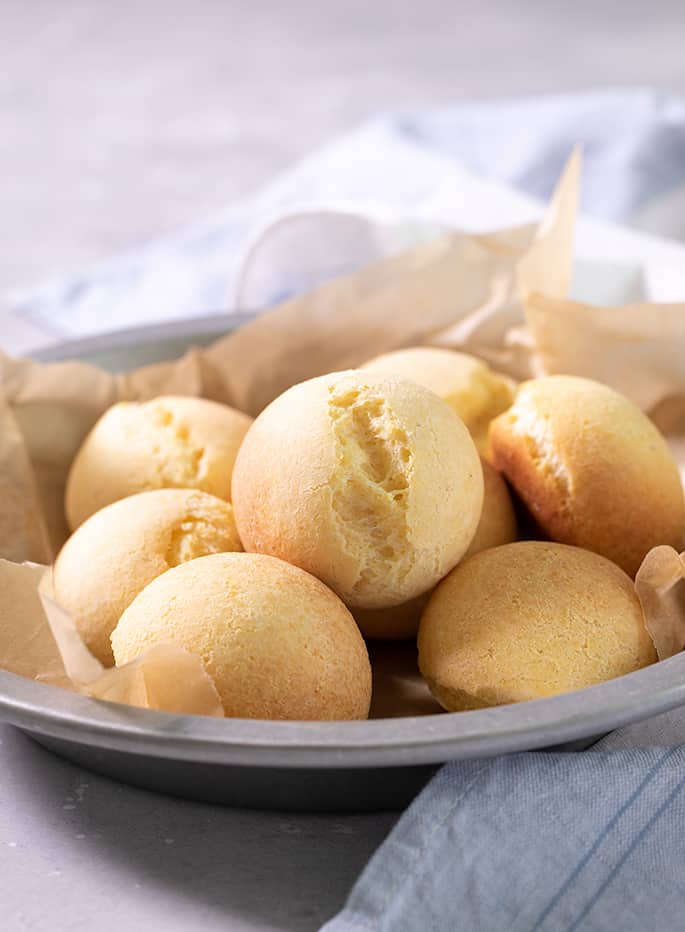
Pan de bono is a delicious, naturally gluten free bread
When I first started baking gluten free, I was desperate for a recipe that was easy and would work. I had tried baking mixes that I special-ordered from who-knows-where, and even those failed.
I was completely overwhelmed by the variety of flours, and tired of baking with stinky garbanzo bean flour. So when I discovered that there were ways to bake simply, like this pan de bono, that were already naturally gluten free, it was like the heavens had opened up. ✨
There are two flours in this recipe, masa harina corn flour, and tapioca starch/flour, but the crux of the recipe is the cheese and the egg. Together, they make a bread that has layers of flavors — from the crusty outside, all the way to the salty sweetness of the cheesy inside.
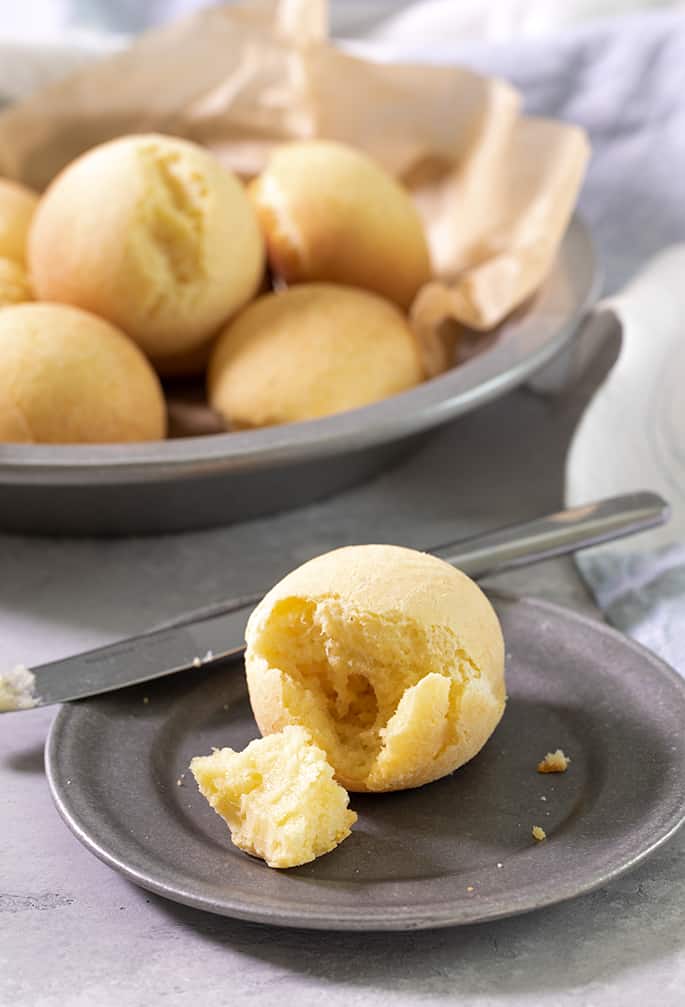
How to make pan de bono dough
The dough for pan de bono is made in a food processor, but you don't need a high-powered or fancy machine. Even a miniature machine will do, but you might have to make the dough in batches.
First, the cheese is made into crumbles by pulsing in the food processor. I've made this recipe with queso fresco cheese, feta cheese, quesito, and even dairy-free cheese (see the Ingredients and Substitutions section below for full details). The saltier the cheese (like feta), the less salt you'll add.
Then, the flours are added and combined quickly and easily with the cheese. With the food processor running, you'll add the egg and process until the dough comes together into a ball. It will happen suddenly, and you'll know it's ready.

Handling and baking pan de bono dough
The dough is super easy to handle, and could certainly be made into other shapes. It will be tacky to the touch, but shouldn't be truly sticky (unless you're using dairy-free cheese). If it is sticky, just cover it with plastic wrap and chill it in the refrigerator for a few minutes.
Bake the rolls for 10 minutes in a hot, 375°F oven. A final brushing with melted butter (vegan butter if you're making the rolls dairy free) helps the rolls brown as they finish baking—and adds some extra, rich flavor.
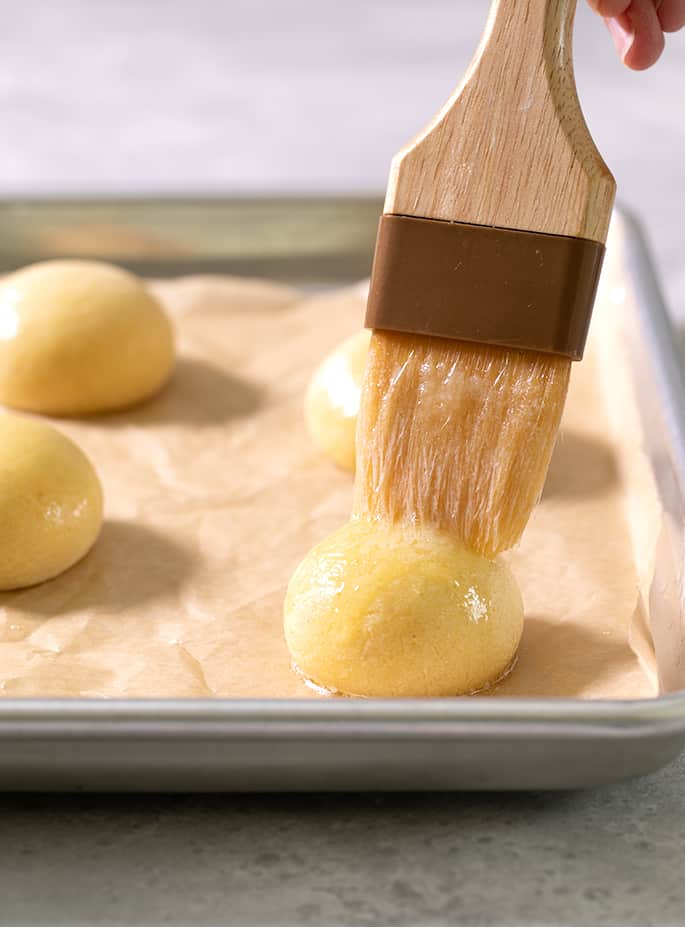
Information about ingredients and possible substitutions
Can you make pan de bono dairy free?
Yes! Pan de bono is naturally gluten free, but naturally dairy-containing. But I'm happy to report that I've successfully made it dairy free by making the following substitutions:
- 8 ounces of Daiya brand dairy-free cheese in place of dairy cheese
- an additional 1/3 cup tapioca starch/flour for a total of 1 cup (120 g)
- an additional egg, for a total of 2 eggs (100 g, weighed out of shell)
- melted nondairy vegan butter in place of melted unsalted butter
- the dough will be stickier, so handle it with wet hands during shaping
The rolls don't brown as well as the original recipe, but they puff perfectly and taste amazing.
Can you make pan de bono without eggs?
You may be able to make egg-free pan de bono. And if you can make it egg free, you can make vegan pan de bono!
There are very few eggs in this recipe (just 1), but since the recipe is so simple that any substitution is risky. It's worth trying with a “chia egg” (1 tablespoon ground chia seeds + 1 tablespoon lukewarm water, mixed and allowed to gel) in place of the single egg.
Can you make corn-free pan de bono?
I don't think so. Masa harina corn flour is a precooked cornmeal (Maseca brand is widely available and is certified gluten free) that's essential to this recipe. There are some recipes where cornmeal can be replaced with ground millet, but I don't believe that would work here. I wish I had better news about making these rolls corn free!
There are two flours in this recipe, masa harina corn flour, and tapioca starch/flour, but the crux of the recipe is the cheese and the egg. Together, they make a bread that has layers of flavors — from the crusty outside, all the way to the salty sweetness of the cheesy inside.
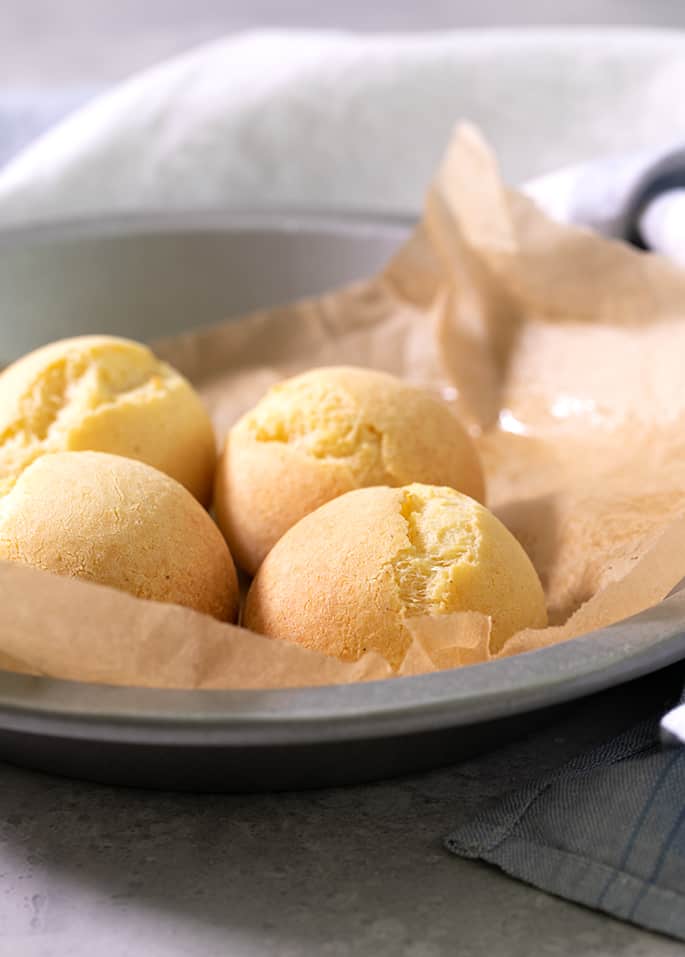
FAQs
Is pan de bono gluten free?
Yes, pan de bono should be naturally gluten free. However, even if the ingredients themselves are technically gluten free, each of the 4 ingredients (masa harina, tapioca starch, eggs, cheese) them must have been carefully sourced as certified gluten free, and prepared in a gluten free environment.
What does pan de bono taste like?
Pan de bono has a crisp, thin shell and a very moist, somewhat sticky crumb inside. It's salty, because it's made with salty cheese, and has the airy texture common in popovers, but not their creaminess.
Is cassava starch the same as tapioca starch?
Yes, tapioca starch, also called tapioca flour, is the starch from the cassava root, also called yuca. Cassava flour, on the other hand, is made by peeling, drying, and grinding the entire cassava root into a fine powder.
Can I make this recipe with “regular” cornmeal?
No, you must use masa harina corn flour to make this recipe. You can't make it using regular corn meal or corn flour. Masa harina corn flour, like we use in this pupusas recipe, is a precooked cornmeal that is treated with limewater, or “slaked.” It behaves very differently than simple ground cornmeal or corn flour, that we use in recipes like cornbread or corn muffins.
Pan de bono | Naturally Gluten Free
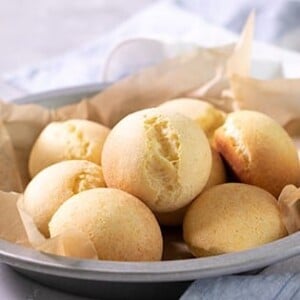
Equipment
- Food processor fitted with steel blade
Ingredients
- 8 ounces queso fresco (Mexican), quesito (Colombian), or feta cheese (Greek)
- ⅓ cup (44 g) masa harina corn flour
- ⅔ cup (80 g) tapioca starch/flour
- ¼ teaspoon kosher salt, (omit if your cheese is very salty)
- 1 (50 g (weighed out of shell)) egg, at room temperature
- 2 tablespoons (28 g) unsalted butter, melted
Instructions
- Preheat your oven to 375°F. Line a rimmed baking sheet with parchment paper, and set it aside.
Make the dough.
- In the bowl of a food processor, place the cheese and pulse until all the large pieces are crumbled into a uniform bunch of pebble-sized pieces.
- Add the masa, tapioca starch, and salt, and pulse until well-combined.
- With the food processor on, add the egg and blend until a very smooth, integrated ball forms (about 2 minutes). You might have to stop the food processor halfway through to scrape down the sides of the bowl.
- Remove the dough from the food processor. If it’s sticky to the touch, place it in a medium-sized bowl, cover with plastic wrap, and chill in the refrigerator until firm (about 15 minutes).
Shape the bread.
- Divide the dough into 8 to 10 pieces, roll each into a round between your palms, and place about 1 inch apart on the prepared baking sheet.
Bake the bread.
- Place in the center of the preheated oven, and bake for 10 minutes.
- Remove from the oven, brush the rolls with melted butter and return to the oven to continue baking until puffed, lightly golden brown all over and golden brown underneath and on the edges.
- Allow the rolls to cool briefly before serving.
Video
Notes
Nutrition information is automatically calculated, so should only be used as an approximation.
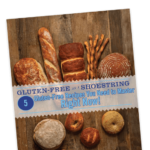

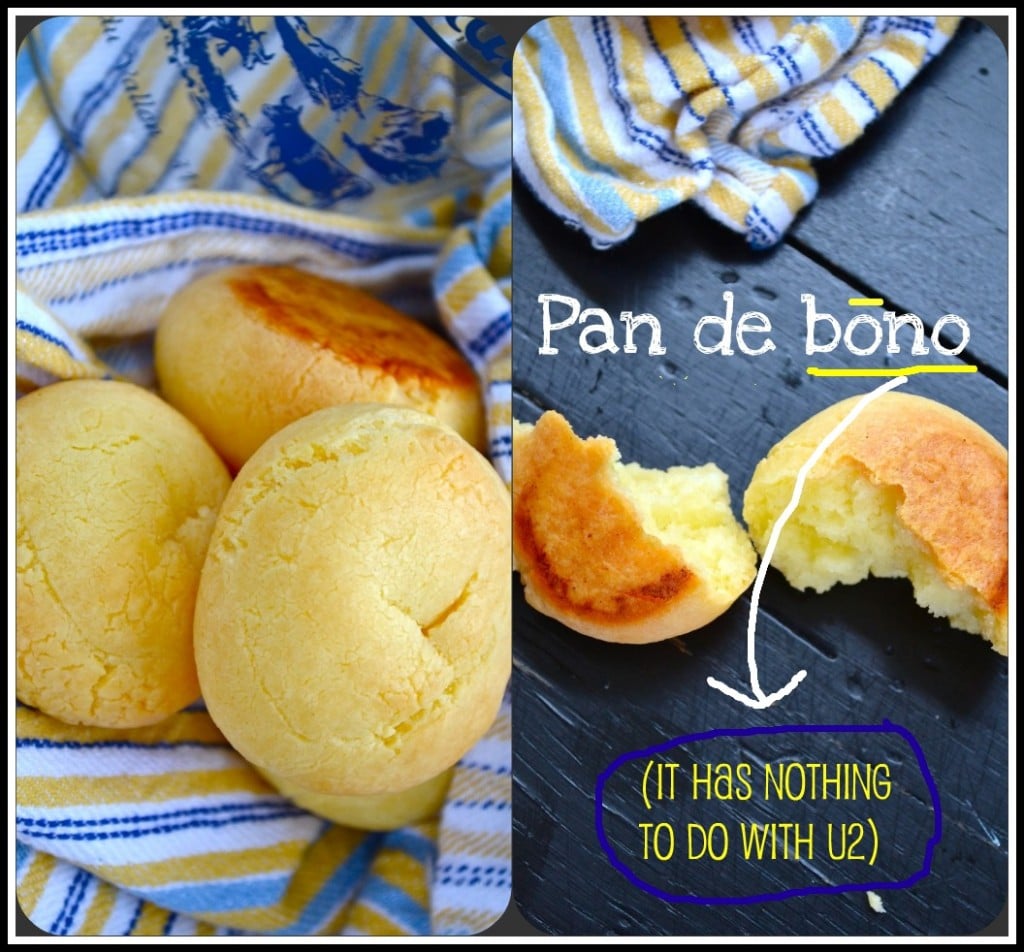
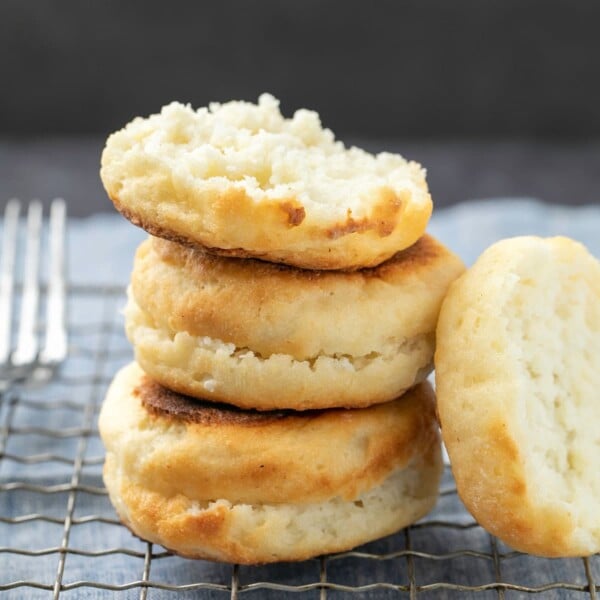
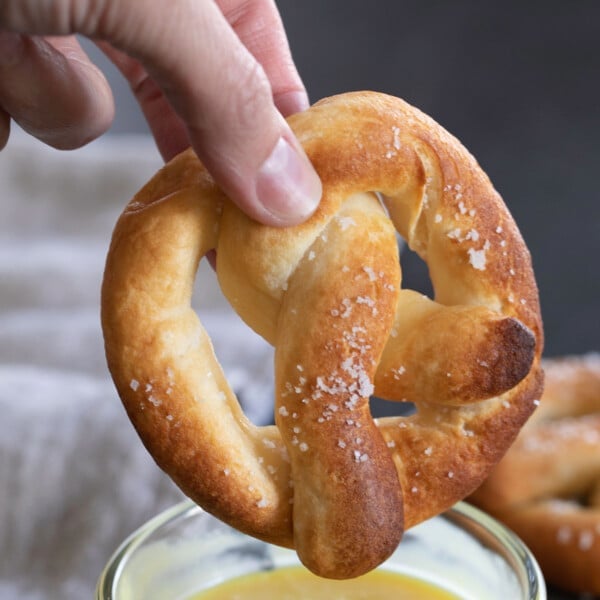
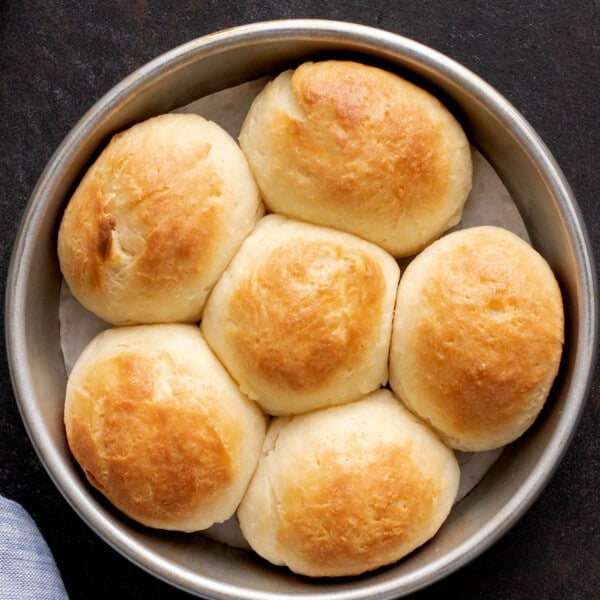
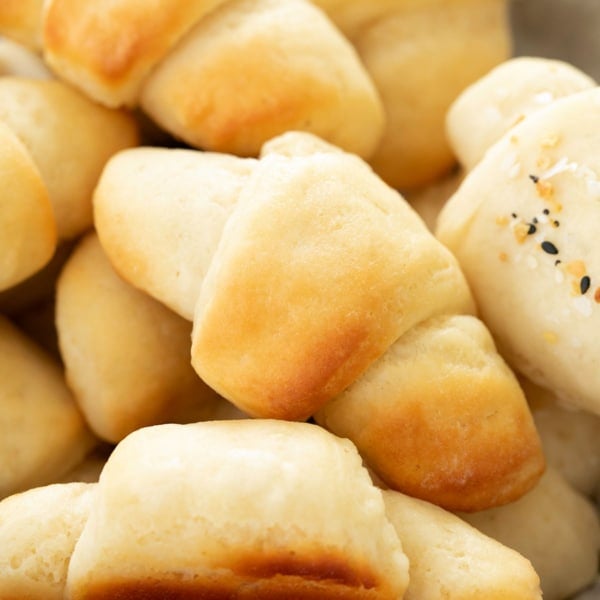









Hello can I substitute with mozzarella cheese? I would like to try it, but I am unsure It would affect the texture/taste of the bread.
I’m afraid not. You can only use one of the three options listed.
Nicole do you think this would work with Greek yogurt instead of queso fresco?
Definitely not, Pamela! You need some sort of cheese with a similar moisture balance, like feta or queso fresco.
Thanks so much for including a dairy-free option! I’m allergic to milk but really love cheese and bread. For the daiya, would you recommend the shreds or blocks? Any specific flavor suggestions? The daiya range is rather large.
Good questions, Jojo! I made them once using shreds (mozzarella-style) and once using the provolone-style slices. Both worked great. The extra egg and the additional 1/3-cup tapioca starch help to even things out.
This is chipa, or pao de queijo, for me, for which I’ve always used straight tapioca flour and a grated hard cheese. This variation looks interesting, thanks.
PDQ is Brazilian and tastes completely different from pan de bono – which is Colombian!
Thanks again Nicole for another brilliant recipe. Through a catalogue of errors and not reading the comments properly, I ended up making these with half feta and half Red Leicester (which is pretty similar to cheddar) and by adding a little bit of water the dough did actually come together and they’re SO tasty!! Bet they’re even better if you make them properly! Next time!
(This is meant to be a reply to Suzanne Clarke’s comment, but nothing happens when I click reply?)
For SUZANNE CLARKE, not sure where you are in NZ, but I’m in Dunedin and New World supermarket carries Masa Harina, you have to look in the international isle though. Its from an NZ company called Tío Pablo, really good quality authentic Mexican stuff (I’m from Southern California originally, so lots of experience with Mexican food!). I was able to get it up in Napier too, although I can’t remember if I got it at the regular supermarket or if I had to go to one of the specialty stores like Vetro or Chantals. Good luck!
Nicole–we loooooove this bread. I come back to it time and time again! Its probably my most-often-made recipe. :)
You mentioned ‘seeing pretzels in your future’. Did you ever use this dough for pretzel dough? Can it stand up to a baking soda bath?
No, you cannot make these into pretzels. I have a recipe for Pretzel Bite Snacks on the blog. Search around!
Nicole
Hi Nicole – I picked up ingredients for this today…..Quesa Fresca cheese is mucho $$$, at $5 for 8.2 oz. I looked at the pre-made version that I had been buying, and it uses mozzarella cheese, which you can often get on sale for under $2 for a package. Do you think this would work???? I’m suddenly a little gun shy!
Nicole-
I have one last question (sorry!). First, I apologize for the breach of etiquette, offering up another recipe on an already-amazing cooking blog! Don’t ask why that didn’t occur to me BEFORE I posted… :) Now the question. Have you ever come across a gluten-free recipe for a bread machine? I bought a Cuisinart that has a gluten-free setting and I’m wondering if you’ve ever tried and/or had any luck?
BTW, your berry scones…. are you kidding?!? I thought the only silver lining to diagnosis of celiac disease is that I would finally drop the last 8 pounds I’ve been trying to shed for a year… uh, this clearly isn’t going to happen…. Too early to say I love you? :)
I agree. I have a great mill and plenty of access to nearly any other grain, so I think I’ll give it a try and post back. We made a batch of the Brazilian bread today, used 1.5 c milk, 3 eggs, 1 t. salt, 1/4 c. grated parmesan, 1 c. sharp cheddar. Super easy (total prep+bake time about 15 minutes), but I’d still like to give grinding my own masa a try. I wanted to ask you if you’ve had any luck grinding your own parts for flour, but figured I’d better finish the book first, just in case it’s already in there :).